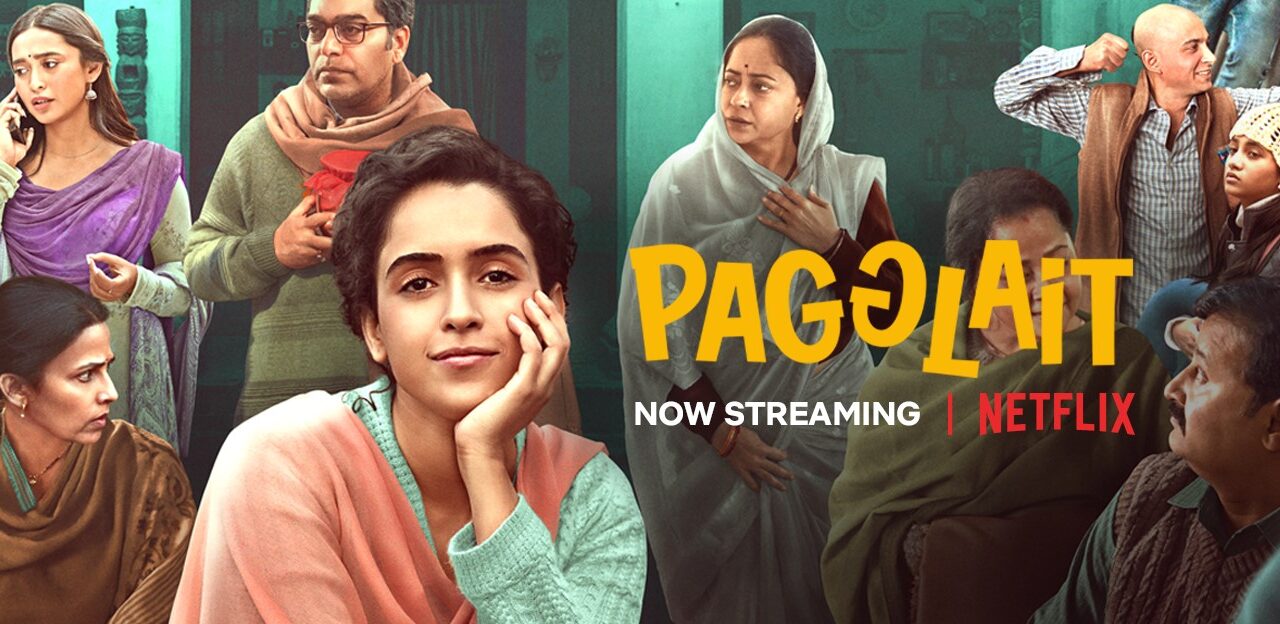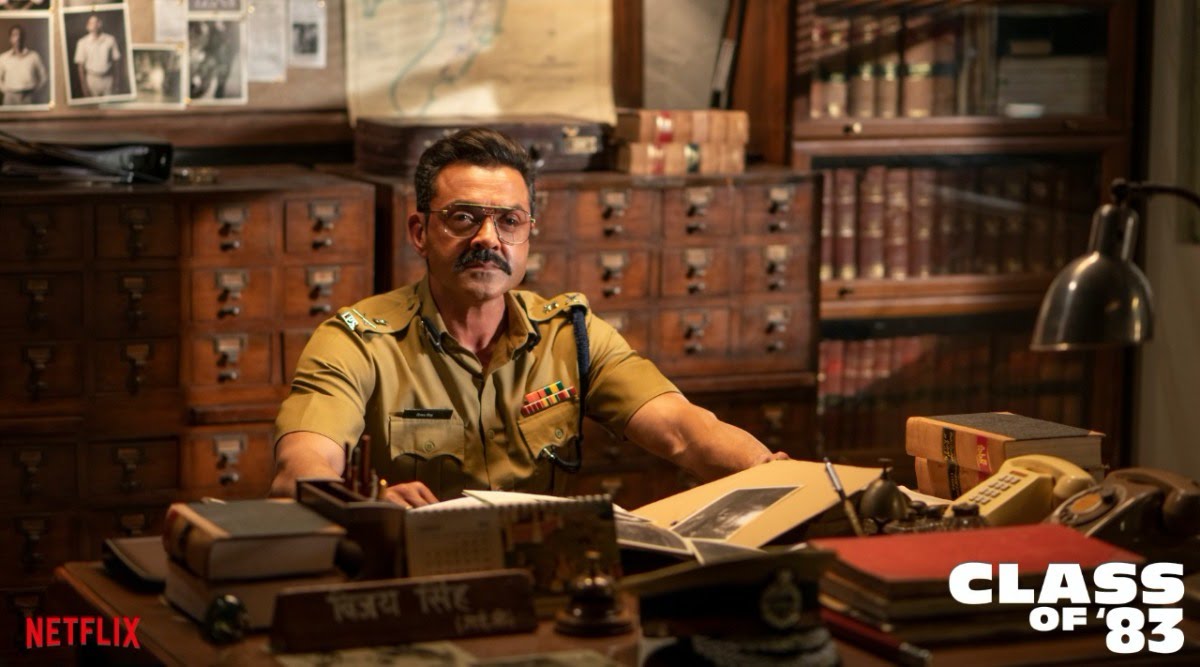Director: Umesh Bist
Cast: Sanya Malhotra, Sayani Gupta, Ashutosh Rana
You could call Pagglait, streaming on Netflix, a tale of liberation. This is true in a literal and mythical sense. The film’s story plays out over 13 days, the typical period during which rituals are performed in the Hindu tradition to liberate the souls of the recently deceased. The protagonist is a young woman in her 20s, Sandhya (Sanya Malhotra), tragically widowed upon the recent passing of her husband Astik.
No details are provided about the cause of Astik’s passing. In fact, we’re not even shown a photo of him. Hindu scriptures say the soul lingers around for 13 days after death. We don’t know if that is true, but Astik’s presence is definitely felt insofar as this film’s story is concerned. Before you wonder, no, this is not a supernatural fare. There are no ghosts. There are skeletons though, figurative ones of course, and they’re quite literally hidden inside Astik’s old closet.
This film doesn’t follow a specific story structure as such, with a plot and three acts. It is more a lived in, meditative mood piece. I’m even tempted to call it a black comedy. Yes, the tragic premise is actually treated with some genuinely rib tickling slapstick comedy- sample a doorbell that croons out peppy Bollywood numbers in a grieving household!
With this context set, the film moves on to a closer examination of its protagonist. Sandhya, puzzlingly, seems unaffected by the tragedy that’s hit her. ‘It’s a case of PTSD (Post Traumatic Stress Disorder)’, one relative tries to reason. But we soon realize that this might not really be the case. As the story chugs along, we get one surprising revelation after another. Were Sandhya and Astik close or was their marriage a dysfunctional one? How much did Sandhya know about Astik anyway? Imagine discovering things about your spouse in 13 days that you never suspected for 13 months or more.
These portions reminded me of another film- Andrew Haigh’s critically acclaimed ’45 Years’. That film, though not entirely comparable story wise, also had a crucial stretch where the wife’s character discovers information she was not meant to be privy to about her husband’s past. But while Andrew Haigh was content with shaping ‘45 Years’ as a thriller around these revelations, Umesh Bist tries so much more with Pagglait. And it works with mixed results.
Pagglait is no doubt a good film. Its technically sound, the writing is as sharp as I’ve seen in a Hindi film in a while and the music is soulful (pardon the pun). But there is a sense of digression you experience after a point. The film is a good two hours long. Apart from Sandhya’s exploratory delve into her husband’s past, Pagglait has an almost parallel thread that examines patriarchal dominance and social toxicity in general. This is indeed an important subject and the sub plots are well written when viewed individually. Overall, however, these do not always gel effectively enough with the protagonist’s arc. This is in part because, though enacted very well by Sanya Malhotra, Sandhya’s character isn’t exhaustively fleshed out. As a result, during the climax, we acknowledge her character’s actions, but don’t really ‘feel’ the same.
Pagglait will definitely end up as one of the better films of the year, though perhaps not the best. It never bores you at least and manages to keep you engaged. Yes, there are shortcomings as mentioned above, but these are not complete dampeners. With a shorter run time and perhaps better character arcs, this could have been a truly great film.
Overall rating: 3/5










